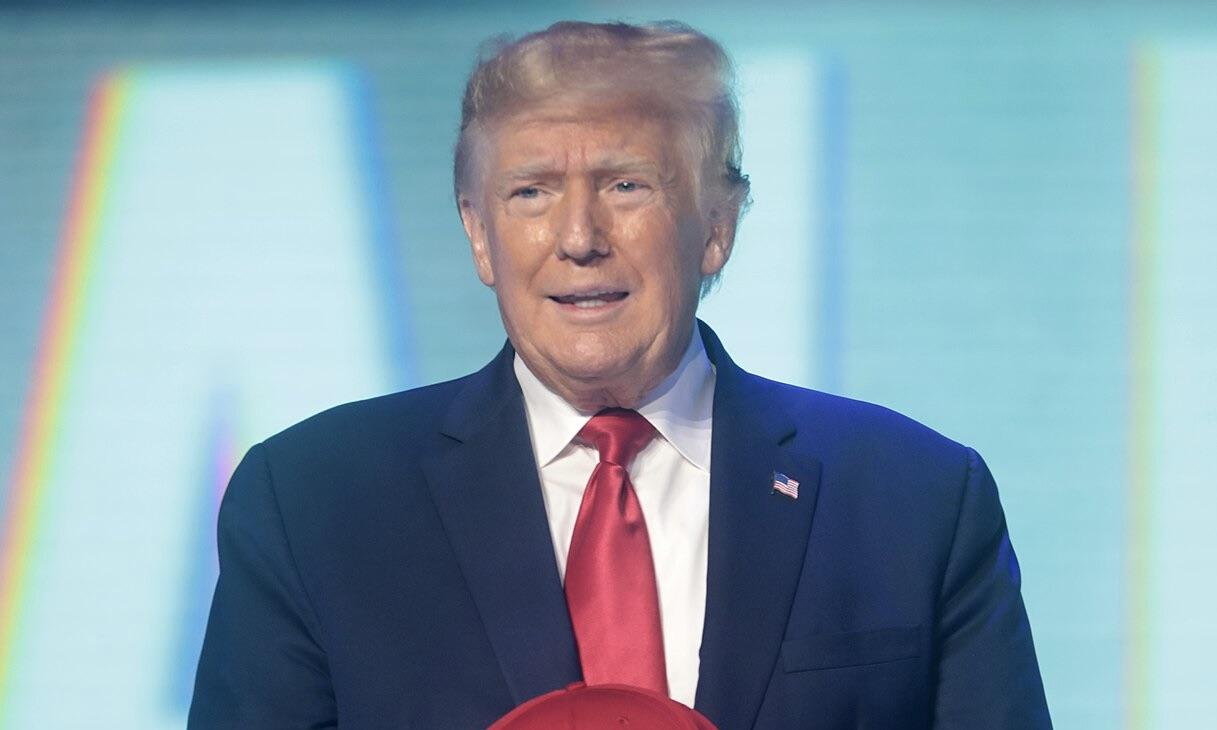A recent survey has revealed a startling statistic: 37% of Americans believe it is "very" or "somewhat" likely that U.S. government agencies were involved in an assassination attempt on former President Donald Trump. The results, reflecting a growing distrust in government institutions, add another layer of controversy as Trump continues to dominate headlines and remains a central figure in the upcoming 2024 presidential election.
The poll, conducted by an independent research group, asked respondents whether they believed U.S. intelligence or other government agencies might have played a role in an alleged assassination attempt on Trump. The fact that more than one-third of participants expressed some level of belief in this theory is a reflection of the deep divisions and skepticism that have come to characterize modern American politics.
This belief in potential government complicity stems in part from Trump’s tumultuous tenure in the White House, where his administration frequently clashed with established government institutions, including the FBI, CIA, and other intelligence agencies. Throughout his presidency, Trump often accused these agencies of being biased against him, a narrative that many of his supporters have adopted in the years since he left office. The rise of conspiracy theories surrounding Trump’s political fate has gained traction, with some believing that powerful forces within the government sought to undermine or eliminate his influence.
The survey’s findings have raised concerns about the erosion of public trust in U.S. government institutions. Political analysts warn that such high levels of suspicion can lead to further polarization, undermining the credibility of agencies tasked with national security and public safety. These beliefs have also been fueled by a media landscape that often amplifies divisive narratives, as well as by Trump himself, who has frequently suggested that he is the target of coordinated efforts to destroy his political career.
While there has been no verified evidence of an assassination attempt on Trump, the perception among a significant portion of the public that such an event is plausible speaks to the broader cultural and political environment. Disinformation and conspiracy theories have flourished in the digital age, with social media platforms playing a central role in the rapid spread of these narratives. In this context, the belief that government agencies could be involved in a plot against Trump is part of a larger trend of distrust in official sources of information.
Experts emphasize that while it is important to take these survey results seriously, they also caution against assuming that all respondents hold firm beliefs in such theories. Some may have been expressing generalized distrust in the government rather than a specific belief in an assassination plot. Nonetheless, the numbers suggest a substantial portion of the population is willing to entertain the possibility that government agencies could be involved in nefarious activities against a former president.
As the 2024 election approaches and Trump remains a central figure in the Republican Party, the tension between his supporters and government institutions is likely to continue. The survey’s results highlight the challenges facing the U.S. political system as it grapples with growing public skepticism and the potential for further division.
EconoTimes cannot independently verify the existence of any assassination attempt on Donald Trump or the involvement of U.S. government agencies in such activities. These survey results reflect public perception, and no official evidence supports these claims.



 Rubio Says U.S. Would Not Target School After Deadly Iran Strike Reports
Rubio Says U.S. Would Not Target School After Deadly Iran Strike Reports  U.S. Middle East Strikes Raise Indo-Pacific Security Concerns for Japan, South Korea, and Taiwan
U.S. Middle East Strikes Raise Indo-Pacific Security Concerns for Japan, South Korea, and Taiwan  U.S. Preparing Possible Corruption Charges Against Venezuelan President Delcy Rodriguez
U.S. Preparing Possible Corruption Charges Against Venezuelan President Delcy Rodriguez  Melania Trump Chairs Historic U.N. Security Council Meeting on Children Amid Iran Conflict
Melania Trump Chairs Historic U.N. Security Council Meeting on Children Amid Iran Conflict  U.S. Interior Department Responds to Leak of Trump Administration Plans to Revise National Park History
U.S. Interior Department Responds to Leak of Trump Administration Plans to Revise National Park History  U.S.-Israel War on Iran Escalates as Gulf Conflict Disrupts Oil, Air Travel and Regional Security
U.S.-Israel War on Iran Escalates as Gulf Conflict Disrupts Oil, Air Travel and Regional Security  Israel Prepares Weeks-Long Military Campaign Against Iran Amid Escalating Air Strikes
Israel Prepares Weeks-Long Military Campaign Against Iran Amid Escalating Air Strikes  Michael Whatley Wins North Carolina GOP Senate Primary, Setting Up High-Stakes Battle With Roy Cooper
Michael Whatley Wins North Carolina GOP Senate Primary, Setting Up High-Stakes Battle With Roy Cooper  Trump Says U.S.-UK Relationship Has Deteriorated After Starmer Hesitates on Iran Strikes
Trump Says U.S.-UK Relationship Has Deteriorated After Starmer Hesitates on Iran Strikes  Middle East Air War Triggers Massive Flight Cancellations and Global Airline Disruptions
Middle East Air War Triggers Massive Flight Cancellations and Global Airline Disruptions  U.S. Officials Review Tencent’s Stakes in Epic Games, Riot Games Over Security Concerns
U.S. Officials Review Tencent’s Stakes in Epic Games, Riot Games Over Security Concerns  Trump Defends Extended U.S.-Israel Military Campaign Against Iran
Trump Defends Extended U.S.-Israel Military Campaign Against Iran  Pentagon Downplays ‘Endless War’ Fears After U.S. Strikes on Iran Escalate Conflict
Pentagon Downplays ‘Endless War’ Fears After U.S. Strikes on Iran Escalate Conflict  Supreme Court Backs GOP Lawmaker in New York Redistricting Fight Ahead of Midterms
Supreme Court Backs GOP Lawmaker in New York Redistricting Fight Ahead of Midterms  Trump and Merz Meet at White House Amid Iran Strikes and Trade Tensions
Trump and Merz Meet at White House Amid Iran Strikes and Trade Tensions  Iran Detains U.S. Citizens Amid Escalating Conflict With the United States and Israel
Iran Detains U.S. Citizens Amid Escalating Conflict With the United States and Israel  Israel-Hezbollah Escalation Deepens Lebanon’s Role in Middle East Conflict
Israel-Hezbollah Escalation Deepens Lebanon’s Role in Middle East Conflict 





























